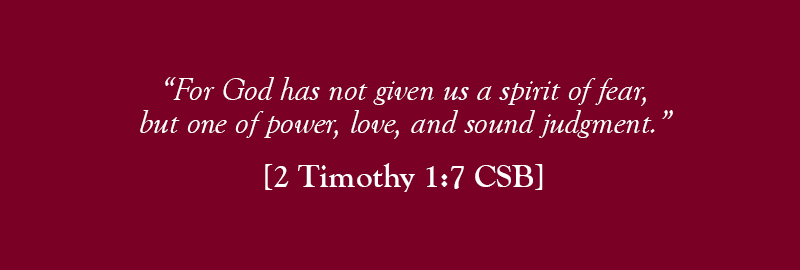|
Cauldron bubble
In his play Macbeth, Shakespeare opens act four by revealing three witches in a cavern. They prepare a brew that seems to comfort the usurper Macbeth. Though Lord Macbeth is blind to it, the audience can sense that the witches are actually facilitating his doom. As they throw ingredients in their cauldron, they sing…
Double, double toil and trouble;
Fire burn and caldron bubble.
Fillet of a fenny snake,
In the caldron boil and bake…
The witches continue until they successfully bring specters to speak to Lord Macbeth. In response to the first apparition that arises from the cauldron, Macbeth gives this short speech:
Whate’er thou art, for thy good caution, thanks;
Thou hast harp’d my fear aright [1]
[He’s saying, “I don’t know who you are or what’s behind you, but thanks for warning me. You both understand and stoke my fears.”]
Macbeth’s speech popped in my mind as I recently talked with a group of pastors discussing the 2020 plague. I think Shakespeare exposed a problem in the heart of humanity. No matter how absurd or wicked the source, we appreciate the echo chamber that harps – stokes and seems to understand – our fears. And just as Macbeth was wrongly comforted en route to his fall, people today doggedly defend both our apparitions and the cauldron from which they spring.
In the early 21st century, the nasty formula of our cultural concoction includes:
- A pervasive state of fear. By every measure, humans are safer and healthier than at any point in history. Yet unreasonable fear holds a maddening control over minds. Interestingly the grip of phobia seems strongest on the souls of those who are healthiest and safest. [2]
- Anthropocentrism. The last three centuries have been marked by increasingly frantic and dedicated attempts to remove all thoughts of God from public discourse. Even in countries not ruled by communism, atheistic superstition has become the accepted philosophy. The upshot is that humans are imprinted with the conclusion that everything is up to us, the usurpers of God’s sovereignty. Each person must perform the accepted steps required by current consensus or he will bring ruin to himself and possibly to all. About 2000 years ago, the Greco-Roman pagan Plutarch described the effects of this atheistic superstition brilliantly:, saying “Such as these verily we ought to pity, yea, and withal to be offended at, because in whose minds they [atheistic superstitions] are once entered and settled they engender many maladies and passions like unto worms and such filthy vermin.” [3]
- Zombies. This short-lived phenomenon of the early Cold War has become a mainstay in 21st c. entertainment. Zombies speak to the unraveling of community and the ingrained fear that one’s neighbors are or can easily become life-threatening enemies. Usually set post-apocalypse [not the real biblical apocalypse, of course, but rather a collapse brought about by humanity alone], zombie stories resonate because of distrust of our communities.
So what can we do? Paul showed the way to escape from the witches’ cavern. He told Timothy, and thus all Christians, that we do not follow a specter of fear. Rather, we access God’s power, love, and discipline imparted to us. That allows us to be forces of reconstruction when any society tears itself apart.
Shakespeare understood this well. He presents the exemplary Malcom, son of Duncan, the king Macbeth had murdered. The play ends with Malcom crowned king after Macbeth is punished. Malcom is a force for order and good because he is working by God’s grace in the manner of 2 Timothy 1:7. His final words serve as a heathy antidote for the unholy brew of our day:
By the grace of Grace
We will perform in measure, time, and place. [4]
Self-examination
Malcom’s statement serves as a great self-assessment. Think:
- Am I unmeasured in my response to a problem? Then I am not operating by grace. I have usurped God’s place and am laboring in my flesh.
- When viewed before an impartial audience – whether in scripture, history, or modern thinkers – do my fears seem timely? For example, would Ruth or James or King Edward the Confessor or Antonin Scalia find my worries inappropriate for my situation? If so, I am likely not operating by the grace of Him who grants power, love, and discipline.
- Do I perform with a sense of entitlement or a chip on my shoulder, resenting or distrusting the people around me? Then I am certainly not acting by God’s grace, since He empowers me to love even the unlovely who share this place.
God bless,
Wayne
